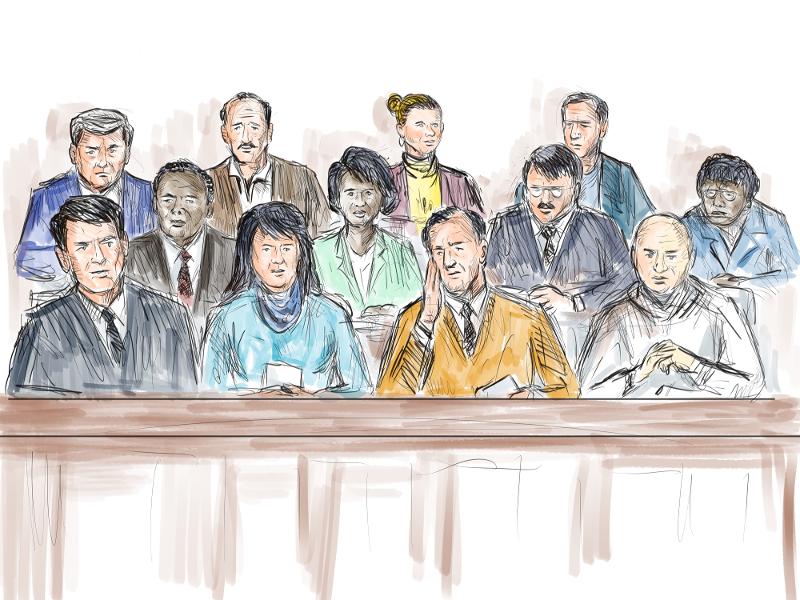Essential Skills: Picking a Jury in a DWI Case

Crafting the right voir dire for a client charged with DWI is as much of an art as it is a skill. Attorneys must begin weaving in the theme of their defense at this critical stage of the trial, and there are numerous case-specific factors to consider before crafting the ideal list of questions.
1. Location of the Trial: Twin Cities vs. Greater Minnesota
The geographical location of your trial greatly impacts your approach to voir dire. A jury pool in the Twin Cities Metro area may have different perspectives than one in Greater Minnesota. For example, in rural areas, you'll find that many jurors don’t trust voting machines, much less breath test machines that have had half their scientific safeguards disabled.
2. Case Specifics: Breath Test, Refusal, or Drug Impairment
Is the case centered around a breath, a blood test, or urine test? Is the person charged with test refusal, or alcohol or drug impairment? For breath test cases, particularly in Greater Minnesota, it’s crucial to address juror distrust of the technology used, similar to doubts some may have about voting machines. In refusal cases, jurors need to understand the nuances behind a refusal, and there may be medical reasons for deficient samples. Drug-related DWI cases, especially those involving marijuana, require jurors who understand that impairment signs for THC may not be as straightforward as alcohol.
3. Race and Community Perceptions
If race is an underlying issue, asking questions to elicit subtle bias is vital. This is particularly important if the defendant's race played a role in how they were treated during the stop or arrest. Keep in mind that not only your client's race, but the officer’s race, may be an issue with certain potential jurors.
4. Medical Issues and Test Results
Cases involving high BAC levels, deficient samples, or medical conditions such as GERD (gastroesophageal reflux disease) or diabetes, present unique challenges. Jurors should be questioned about their understanding of how such conditions might impact test results and impairment indicators.
5. Reason for Police Contact
Was the initial stop due to erratic driving, a broken taillight, or another reason? The reason for the initial contact can shape jurors' perceptions, and it’s important to explore their views on the legitimacy of the stop.
Key Questions to Consider During Voir Dire
I hope that it is clear that being a good attorney means that there are no “standard” questions for jurors. However, that doesn't mean you need to reinvent the wheel for each case - certain inquiries are consistently valuable in DWI cases. Here are some examples that help uncover jurors' biases and attitudes:
- Connections to Advocacy Groups:
- Have you ever donated to Mothers Against Drunk Driving (MADD) or Students Against Destructive Decisions (SADD)?
Understanding a juror's connection to these organizations can provide insight into their predispositions toward impaired driving cases.
- Have you ever donated to Mothers Against Drunk Driving (MADD) or Students Against Destructive Decisions (SADD)?
- Personal Experience with DWI:
- Have you or anyone close to you ever been arrested for DWI?
- Have you or someone close to you ever been a victim of a drunk driver?
These questions help identify potential biases based on personal experience, whether sympathetic or judgmental.
- Assumptions of Impairment:
- Have you ever seen someone weaving down the road and assumed the driver was drunk?
- Can you reliably tell if someone is impaired by drugs or alcohol when you have never met them and don’t know their normal behavior?
These questions test the jurors' ability to differentiate between observable behaviors and their preconceived notions of impairment.
- Distraction Awareness:
- Have you ever driven while distracted, such as eating, texting, or using your phone?
This question aims to connect the jurors' experiences and the notion of impaired driving, highlighting that anyone can make poor decisions behind the wheel.
- Have you ever driven while distracted, such as eating, texting, or using your phone?
Tailoring Voir Dire for Your Case
Conducting effective voir dire in a DWI case means adapting your questions to the specific circumstances. By understanding the key factors influencing each case, you can craft a strategy that uncovers hidden biases, educates the jury, and sets the foundation for a fair trial. Remember, the goal isn’t just to find favorable jurors for your case, but to expose those who cannot be impartial or are inclined to evaluate the evidence with preconceived judgments.
Feel free to reach out if you have questions about voir dire strategies or need assistance tailoring your approach. The right voir dire can make all the difference in securing a two-word verdict for your client.

